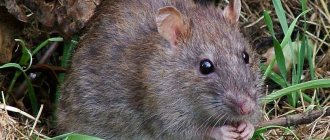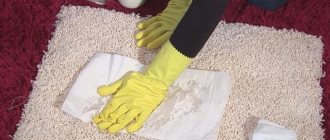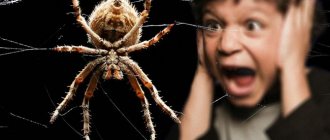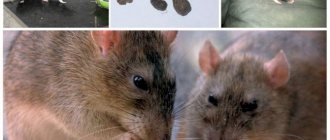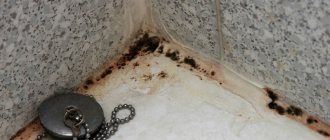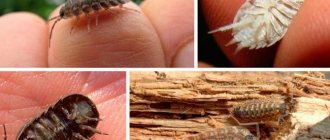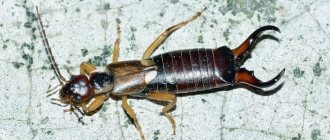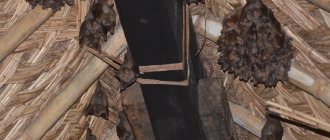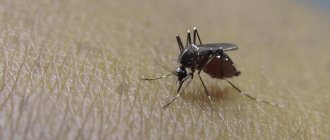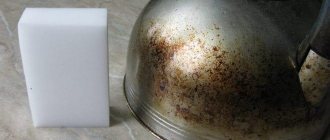Has your life at the dacha turned into a chase for rodents that spoil everything they get their hands on and giggle at your cat? Enough tolerating this! We are talking about proven means that will help exterminate tailed insolent creatures.
Humanity has been fighting mice and rats since time immemorial. A description of its methods is found even in ancient manuscripts; the Egyptians, for example, advised expelling mouse groups using smoke from burning excrement. Residents of the Mediterranean used poisonous plants - henbane and green hellebore. The Greeks and Romans called on weasels and ferrets for help. At the end of the 17th century. Potent poisons such as arsenic and strychnine began to be used, and already in the middle of the 20th century. The chemical industry has seriously taken up the fight against mouse scourge, inventing new means. However, over time, mice and rats learned to adapt to them, and when you arrive at your favorite dacha in the spring, you again see traces of the presence of rodents. What methods will really help in this protracted confrontation between two mammals?
Glass jar trap for catching mice and rats
This method of catching mice or rats is quite simple and humane, since the animal remains alive. However, the method is not suitable for those who decide to get rid of mice during a long absence from the dacha, because... The trap needs to be cleaned of rodents that have fallen into it.
Take a classic three-liter glass jar and grease the inside with oil to make the surface slippery. Don't forget to put bait, such as bread, on the bottom. Then place the jar with the neck up at an angle of 30 degrees on a support - this can be a wooden block or books. If the tilt is increased to 40-50 degrees, then the can will “work” against rats. You will hear if the animal has entered the jar when it starts scratching on the glass, throwing the bread around.
A mouse or rat will not be able to push off from the slippery glass surface and jump out through the neck. Before lifting the jar with the caught animal, be sure to close the lid, and only then move the container to a vertical position, otherwise it will run away (rats, for example, can jump up to a height of 1.5 m).
You can see how effective such a remedy is by watching a video where a mouse fell into just such a trap.
Harm to humans
Mice are primarily a source of infections. They can carry many diseases that can be transmitted to humans, from intestinal infections to tuberculosis.
They spoil all the things they can get to - they gnaw on supplies, make nests in things stored for storage, gnaw passages in the walls and floor, disrupting the thermal conductivity of the room.
Rodents are extremely allergic. Their fur, saliva and excrement can cause a severe asthma attack in a person prone to this disease.
Mice smell extremely bad and it is very difficult to get rid of the smell of their waste products.
Glue for mice and rats
One of the most effective methods of controlling rodents, although not very humane, because the animals die slowly, sometimes making loud squeaks. There is also a chance that your beloved dog or, for example, a hamster will find the trap faster, and then it will not be easy to tear its face off the sticky surface.
There are two modifications of this method, depending on the type of adhesive composition. You can purchase a ready-made adhesive trap, from which you only need to remove the protective film and install it in the right place. Or buy glue and apply it to a horizontal surface - a piece of plywood, cardboard or glass, and pour bait into the middle (this can be any cereal or special poisons for rats and mice, which are sure to work so that the animal does not suffer for a long time). It is also worth remembering that the trap should not be left unattended for long periods of time for sanitary purposes.
Tansy and black root in the fight against mice
The safest way to get rid of mice not only in the house, but also to protect plants in the garden from them is to use herbs.
Tansy has a strong camphor odor, which rodents really dislike. If you place bunches of 3-5 branches of this plant in the right places, for example, next to food, where it is better not to use poisons, mice and rats will leave your home for a long time.
In the fight against animals, you can use black root. Humans can’t smell it, but mice can’t stand it! Remember that blackroot is a poisonous plant, so you need to wear gloves when working with it. Before use, dry branches of the plant should be scalded with boiling water. You can also prepare a decoction of black root and treat the room with it.
You will need: 1 part of a dried plant (preferably the root part, since it contains the most toxic substances), 10 parts of water.
Preparation. Place the dried herb in a pan that you do not use for cooking, as blackroot is poisonous. Pour boiling water over it and place on low heat. Bring the mixture to a boil, then leave to simmer for 10 minutes. Next, cool to room temperature, strain through several layers of gauze and pour into a spray bottle.
- 14 plants that will help drive mice away from your garden
In order to free the beds from mice, it is not necessary to use heavy chemical artillery. Sometimes plants that are familiar to us are enough.
The room must be treated immediately before the broth deteriorates. Remember that the product should not come into contact with food or living creatures. You can also use black root tincture, which is sold in pharmacies.
Types of bait
The standard idea, drawn from a popular cartoon, is that mice are ready to fight to the last drop of blood for a piece of cheese.
In fact, this concept is completely wrong. Rodents react much faster to natural and familiar food, such as grain, bread and some smells. To effectively lure mice, it is better to use a fresh piece of aromatic bread , which is additionally moistened with aromatic unrefined sunflower oil. It must be said that using sesame oil instead gives a greater luring effect. Sesame does not grow in our country, but its smell is so attractive to mice that just a drop of oil from this plant will attract a large number of rodents.
Ash will permanently rid your home of rodents
Once upon a time, people noticed that mice did not live in houses built on ashes for several years. The fact is that rodents really don’t like ash, because it contains alkali and strongly corrodes the animal’s paws. Moreover, the animal has to constantly lick it off, as a result of which the irritation spreads to the oral cavity and stomach. To combat rodents, you need to grind the ash into powder, and then sprinkle it on the dry floors of the basement and cellar at the rate of one bucket per 5-10 sq.m. The only downside to this method is that animals will spread small particles of ash throughout the house, and you will have to constantly clean up.
Ultrasonic repellents
Rodent repeller
Ultrasonic repellers are available in two main types: with ultrasound frequencies up to 50 KHz and up to 75 KHz. It is believed that the latter are more preferable, since mice are able to hear ultrasound up to 75 KHz.
Repellers of the Electrokot series
Repellent "Electrocat Turbo"
Repellers of the Electrokot series A series of repellers with a frequency of up to 50 KHz. They are used to protect buildings with an area of up to 200 square meters. The device is installed on the wall and operates in two modes: day and night. The device has a radiation angle of 110°.
A modified version of the repeller (Turbo) operates in the same frequency range, however, the frequency constantly changes during operation, which creates additional discomfort for rodents. In addition, in addition to ultrasound, this device is equipped with a more powerful transmitter and a bright LED that affects the vision of mice. The area of the room covered by the operating device is 400 square meters.
Tornado Repellers
Repeller Tornado-400
Repeller Tornado-1200
Tornado repellers Currently, the series is represented by several models: Tornado-200, Tornado-400 and Tornado 1200. The digital index indicates the operating area of the device. All repellents operate at frequencies above 70 kHz.
The latest model (Tornado-1200) is a semi-professional device. In addition to having the highest power, the emitter also has a circular orientation. Additional options include 7 operating modes and light indication. For ease of operation of the device, a remote control is supplied.
A regular mousetrap plus peanut butter will help catch rodents
Standard mousetraps are not always effective against mice, so cunning rodents may simply not fall for them or be able to take the bait so that the trap does not work. However, mice's weakness for peanut butter may work to your advantage. To do this, you need to put peanut butter not only in the center of the mousetrap, but also spread it around the edges to lull the animal's vigilance. When he tries the bait from the edge and makes sure that it is safe, the oil will remain only in the center, where the mouse will go, and the trap will then slam shut.
Special granules for killing mice and rats
One of the most popular and convenient methods of fighting rats and mice is the use of poisons. Compared to folk remedies, they always give good results in the shortest possible time. The chemical industry today offers poisons that vary in their effects on rodents. The most modern drugs are considered to be those created on the basis of anticoagulants, which have a prolonged effect and do not cause alertness in rodents.
| Drug name | Active substance | Peculiarities |
| Bros | Brodifacoum | A drug that, after consuming a lethal dose, sharply reduces blood clotting. As a result of this, any internal or external damage to the animal leads to internal bleeding and death. It contains feed substances that are very attractive to rodents. |
| Ratobor | Brodifacoum | It acts 4-5 days after entering the intestines, sharply reduces blood clotting, causes suffocation of the rodent and mummification of the carcass. The effect of the poison is delayed, so other rodents do not associate the death of their fellow rodents with eating the bait. |
| Clean house | Flocumafen | The drug prevents the formation of vitamin K1 in the body. As a result, the natural mechanisms affecting blood clotting are disrupted, and the mouse dies from excessive bleeding. The drug is relatively safe for fish and birds. |
| Storm | Flocumafen | Once in the rodent's body, the poison blocks the production of proteins responsible for blood clotting, leading to multiple internal bleeding. The granules have a bitter taste so that cats and dogs do not accidentally eat it. |
Peppermint essential oil will make tailed parasites leave your home
Reliable and humane, if you exclude direct contact with rodent fur, a remedy that will force uninvited guests to leave your home.
Peppermint essential oil can be used in several ways, for example, adding a few drops to the water for washing floors - the main thing here is not to overdo it, otherwise the strong smell will cause a headache. You can moisten napkins with oil and put them in jars that need to be placed in the basement, cellar or barn.
A solution containing mint essential oil, water and alcohol works well against rodents.
To prepare it you will need: 300 ml of water, 10-15 drops of mint essential oil, 10 ml of alcohol.
Using a spray bottle, it is necessary to treat all cracks, floors and other hard-to-reach places where rodents may be located.
A sulfur smoke bomb will quickly rid you of mice and rats
An effective and quick means of getting rid of not only mice and rats, but also moles and insects.
The method is more suitable for a cellar or garage, since the sulfur dioxide gas released when using a sulfur smoke bomb is dangerous to humans. However, sulfur bombs can also be used in residential areas. Of course, household members will have to change their habitat for several days and remove all edible products from the house, as well as clothes, bed linen, towels and personal hygiene items, but after ventilation, everyone will be able to safely return to their home, already free of mice.
- Sulfur smoke bomb - instructions for use in the cellar and greenhouse
We tell you how to use a sulfur bomb when processing a cellar and other buildings on the site.
The method is effective, first of all, because when treated with a saber, the poisonous gas released fills the entire space, and therefore mice and rats simply cannot hide from it and will die.
How to understand that pests have appeared in the house
How can you tell if there are small rodents in your home? It is enough to pay attention to the following signs of their presence in the home:
- the appearance of gray soft droppings that harden within a few days;
- musty smell in the house;
- the appearance of holes in the floor and walls, around which there are scraps of chewed paper;
- unusual noises at night: rustling, squeaking.
If you notice several of these signs in your home at once, you can be sure that there are already mice in your home. It's time to take the necessary measures to get rid of them as quickly as possible.
The ferret is the worst enemy of mice and rats
If you follow the methods of fighting mice that were used by the ancient Romans and Greeks, then, in addition to cats, they also used ferrets. Of course, we all know examples where a cat, unfamiliar with wild nature, did not react in any way to the presence of rodents in the house or was even afraid of them. But ferrets are a nightmare for mice! The mere sight and smell of predators of the Muslin family makes small dirty trickers quickly leave your home. Of course, if you raise chickens at your dacha or your neighbors do this, then it’s better to forget about the ferret, because it won’t be difficult for him to get into the chicken coop and suffocate the birds. But under the same roof with cats and dogs, predatory animals get along quite well. It is also worth keeping in mind that ferrets are active and curious animals, so you need to be attentive and careful when keeping them.
The fight against rodents requires well-thought-out tactics, because a mouse, and even more so a rat, despite its size, is a cautious and cunning animal. You shouldn’t stop at one method; it’s better to use a combination of tools to ensure that small pests leave your home forever.
Using the contents of the kitchen cabinet
Even in the kitchen cabinet you can find simple means for removing rodents. The most common varieties used in cooking are presented and described here. They are found in almost every kitchen.
Carnation
Cloves are the dried flower buds of evergreen plants with red and white flowers. The buds must be harvested at the right time, and it takes between 4,000 and 7,000 buds to produce one pound of cloves. The aroma of this plant is comparable to tobacco, as it has a bright, interesting smell. If you set fire to a dry clove, the smoke from it will scare away harmful rodents, insects, and blood-sucking parasites.
Coriander or cilantro
The term "coriander" is often used to refer to a spice made from the dried fruit of the Coriandrum sativum plant. This herb is also called cilantro or Chinese parsley. The fruits, or seeds, are small and round, brown or tan in color. They are sometimes called coriander or coriander seeds. Cilantro leaves have a spicy taste and aroma that often causes extreme reactions. People either love him or hate him. Small animals react very negatively to coriander.
Chilli
Chili peppers are in the line of vegetables with garlic, onions, and peppers. Among them, it is the most caustic, pungent, and bright in both taste and aroma. Its strength and hardness are not inferior to vinegar or ammonia. Small and large animals, rodents, insects, and even people cannot stand such a specific smell. It can be used in any form - fresh, dried.
Sage
Sage is an herb with oblong gray-green leaves that are used in cooking and herbal medicine. The herb emits a pungent, slightly astringent odor. Fresh leaves are usually used, although it is one of the few herbs that actually has a more intense and concentrated flavor when dried. If you buy dried sage, you should store it in a cool, dark place in an airtight container to preserve its specific properties. Growing sage is relatively easy. It will thrive in most environments as long as it is in sunny, well-drained soil. Small animals do not like its aroma.
